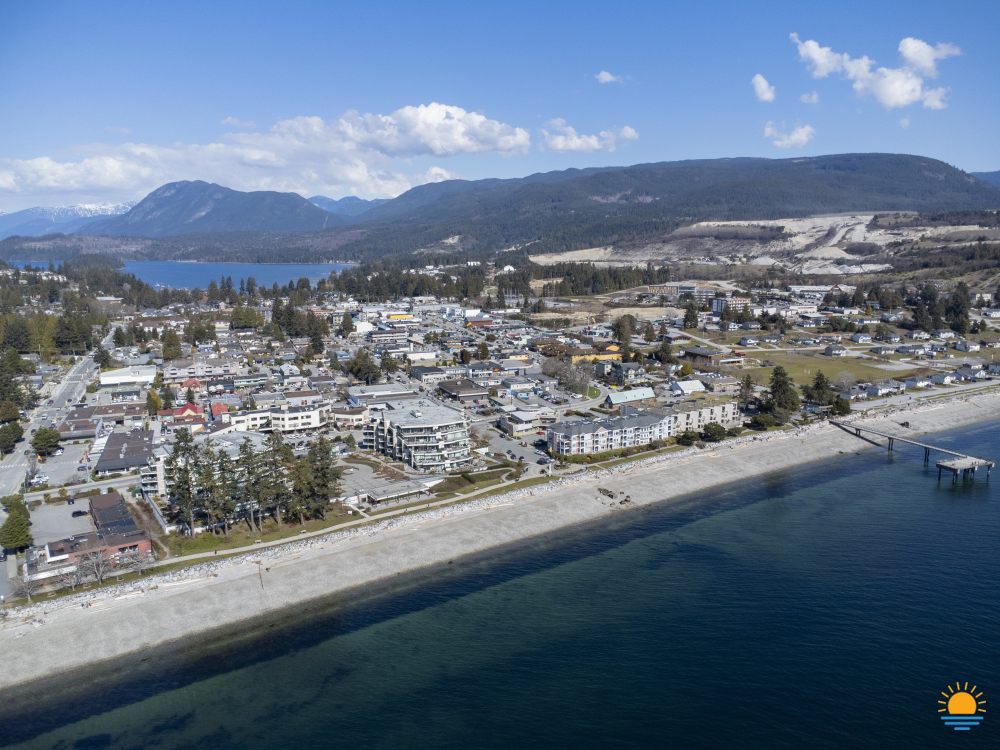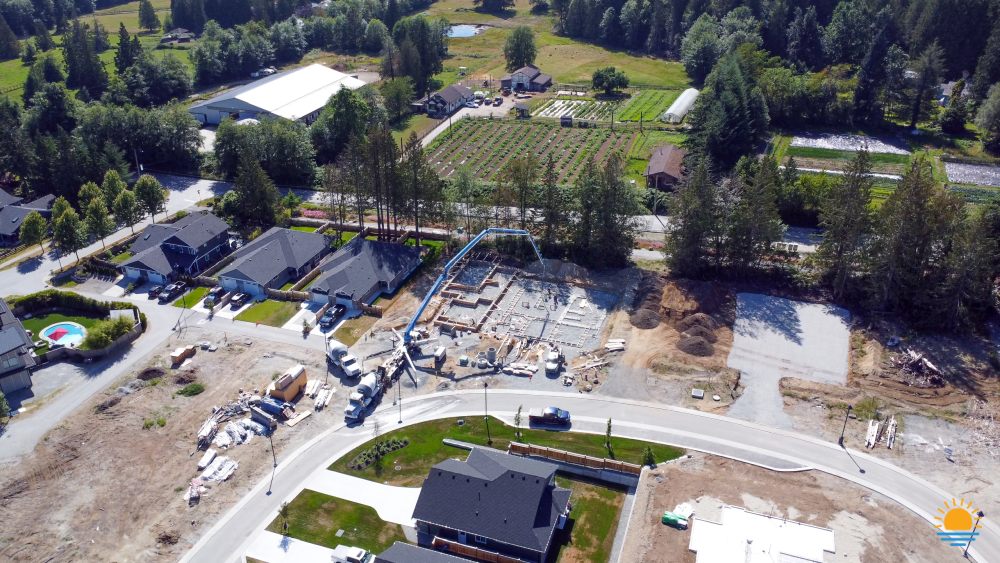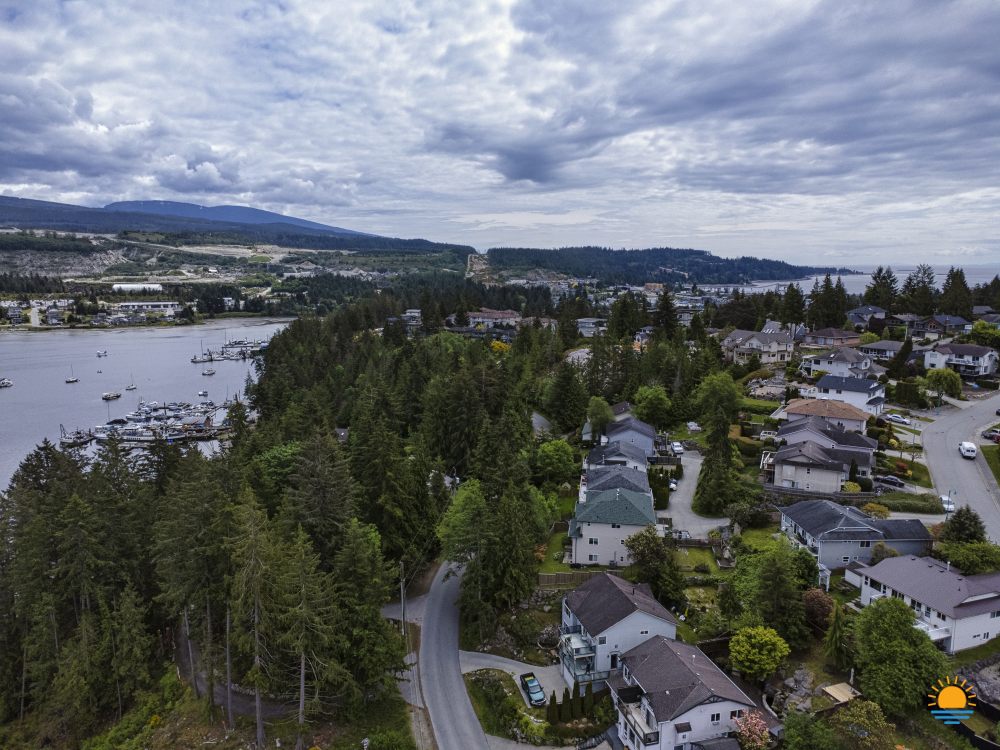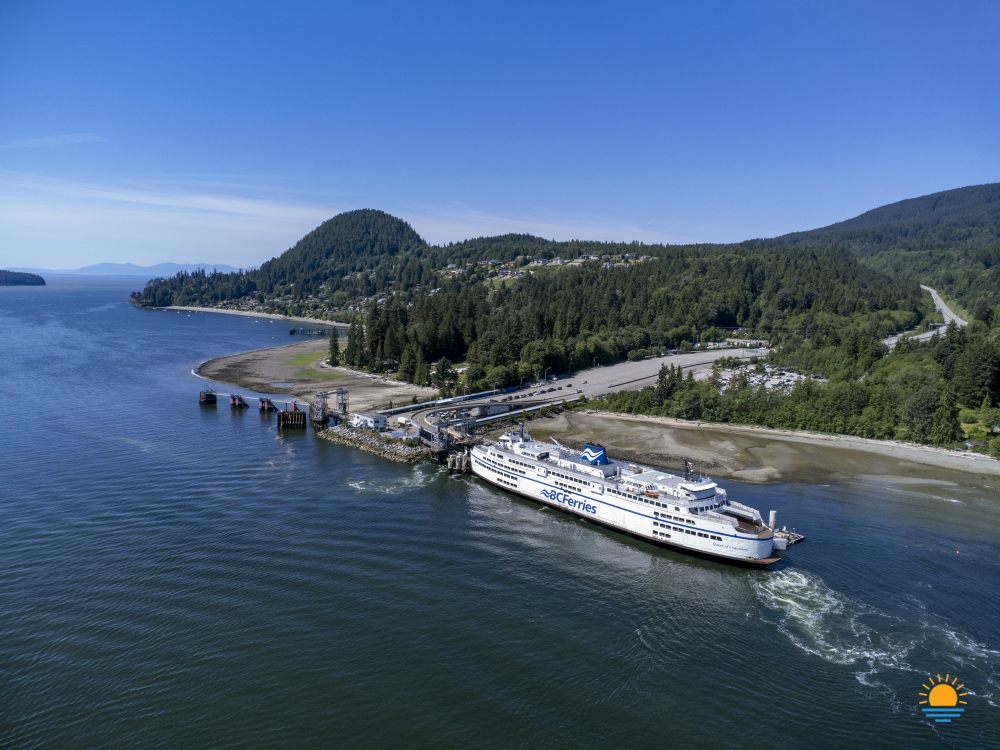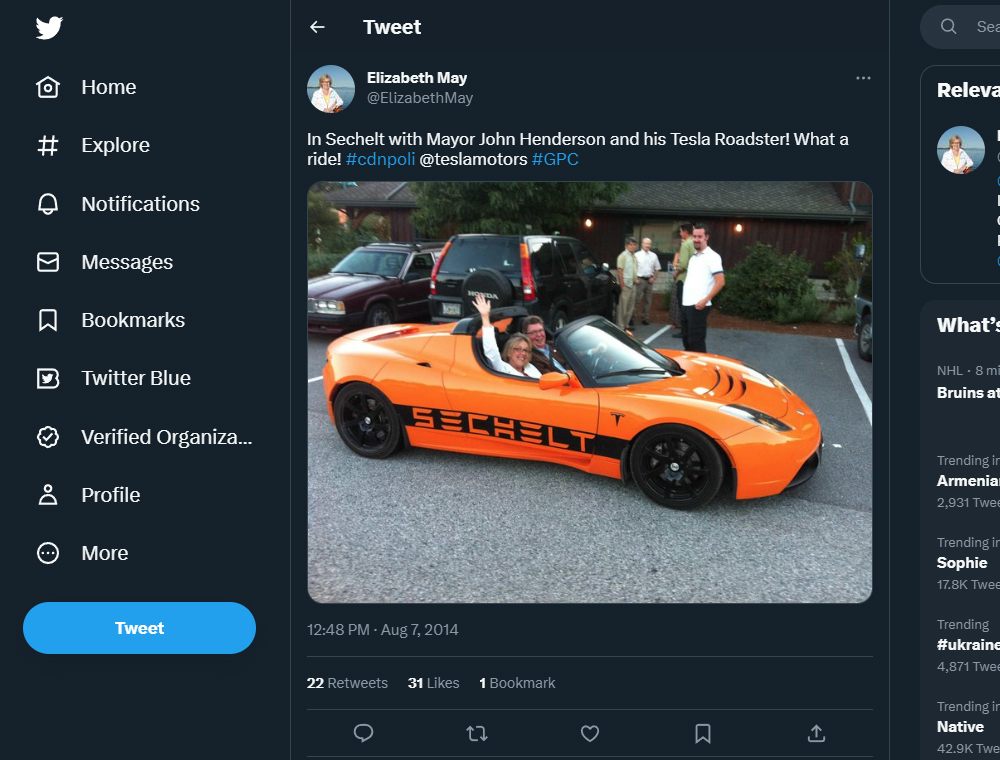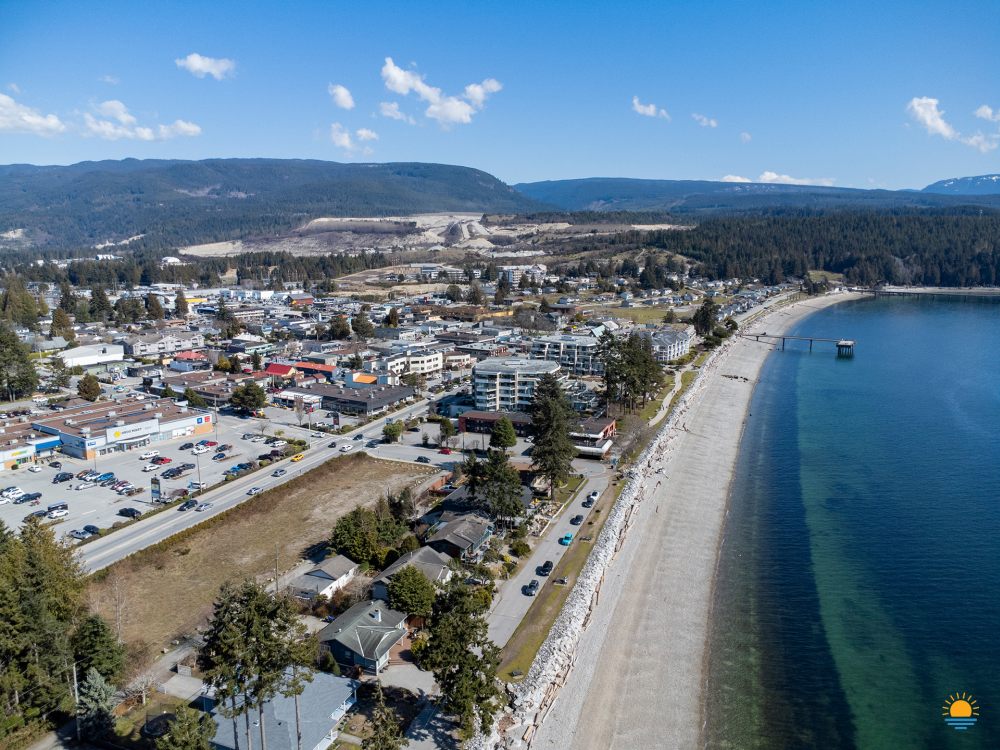This post was written using a transcript from Tony's May 2023 podcast. It’s been edited for clarity.
TONY BROWTON: A Sunshine Coast resident for over 20 years, John Henderson first served as Sechelt's mayor from 2011 to 2014. Between 2018 and 2022, John was the chair of the Sechelt District Chamber of Commerce. A chartered professional accountant by trade, John has also been a director for a number of nonprofits and is a co-founder of the Sunshine Coast Electric Vehicle Association. In 2022, John was re-elected as mayor of Sechelt and currently also serves as one of Sechelt's representatives on the Sunshine Coast Regional District Board of Directors. Mayor Henderson, welcome to the podcast.
MAYOR JOHN HENDERSON: Thanks for having me, Tony.
2nd term as mayor
TB: You were previously the Mayor of Sechelt from 2011 to 2014. What is it that compelled you to run again?JH: Well, I got approached last year. I had no intention of running, but I was approached because a number of people felt that we needed to get some more things done. And so in 2012, 13, 14, we were successful in building the Sechelt Water Resource Center, which is our wastewater treatment plant, right downtown. It seems strange to think of a facility like that, but it was downtown in the past, and it smelled terribly, it made noise for the residents nearby. And in three years we got it built, we got it funded, and we got it operating, and it's still one of the best in Canada. And we won seven national awards. So I'm intrigued by the opportunity to do that again for some of our other challenges, and that's, I think, why people really wanted me to come back.
Sechelt’s biggest CHALLENGES
JH: Well, no surprise, everybody is talking about water. Everybody is talking about housing, community safety, so all of those are the high level things. I also think there's an opportunity to bring back community. COVID changed the way we tended to interact with people, and I'm really excited about some initiatives we're starting to work on, that will bring back a sense of both the community and the sense of fun for all of us.
TB: Like gatherings? Having people out there?
JH: Yes, gatherings, awards, recognition of people for what they've done. And just generally, again, getting back to having a better experience. We're so lucky. This part of the world is the best place in the world, and I want to see us make sure we enjoy it ourselves. Lots of tourists come and enjoy it and tell us how wonderful it is, which is rather weird because we don't necessarily realize how lucky we are to be here.
Sechelt’s water shortage

JH: There is. The water issue affects everywhere on the coast. North Pender, South Pender, have their own water supply, but even they go to water restrictions occasionally. The Town of Gibsons has their own water. Lucky them. And lucky us, because they've been helping by providing water to the rest of the communities. So everybody from Langdale to Halfmoon Bay, Madeira Park, they need water. So when I ran, it was, in part, because I recognized we had two parts to the solution. One, we need water now, just to get us through the next two or three years. And then we need the long-term solution. Again, it's weird that we live in a rainforest. We have water all over the place, we have flooding, we have wells everywhere, and we don't have enough water when we need it in the summer and in the fall.
JH: And so really the focus is on two things. In the short-term, take water from where we can get it, make sure it's safe, and avoid water restrictions like we have had, and avoid the very real possibility that we could run out of water. That's a pretty serious thing to have to talk about. Over the next two or three years, I'm committed to then also solving the long-term, because we've got huge lakes. We could build reservoirs. There's a number of things that would provide the water that we need forever. But first we got to help find water for this summer and next summer, and probably the summer after that.
Sunshine Coast housing crisis
JH: There's two questions in that. The first is, yes, there's funding for water. We, through the Sunshine Coast Regional District, just announced that $6M grant to help us finish the water meter installations, which are in the Sechelt area, generally. That's important because it helps ensure we're not having leaks in your home pipes, the pipe from the road to your homes. That, in some jurisdictions, has resulted in a savings of up to 30% of the water. So think about a hose leaking all night, that's a lot of water, and if it's underground, you might not know about it. So meters will help that. The funding for that is important, because the bids that we got to install the meters are quite a bit higher than we expected. That's a good news story to be able to get those meters installed in the next couple of years.
JH: One of the big things about housing, and I want to make sure your listeners understand, we need more housing. The issue of housing prices, the issue of availability, all depends on supply. And this community, we don't have enough of most anything in when it comes to staff. We don't have enough doctors and nurses and care aids and waiters and waitresses and trades. We're short on a whole lot of things. So to me, it's common sense. We have to grow, and we have to grow to make sure we bring in those kinds of people. For that to happen, we have to have the right type of housing that is affordable. For that to happen, we have to have land on which to build the houses. And for that to happen, we have to have water so that it all makes sense. So it's a circular situation that we're in, which is achievable.
JH: We just have to get on with it. And water, knowing that there's a plan for water is important, I'm sure your clients and developers in general realize, that if we, at the District of Sechelt, were to approve a building permit today, those homes aren't going to be built for at least a year and probably two to three years. While we can issue a permit today, it's not going to be using water today. So we've got to just get the water, the water supply now, and get that developed while you and your clients are building houses.
TB: I guess it's a bit of a balancing act between balancing the needs of a developer and the environment and water supply and that kind of thing. And then what's needed as far as housing for, like you said, all the workers that are coming here that we're seeing a shortage of now.
JH: Well, I think the important thing on that is to be creative in the types of housing. The idea of building four-bedroom single family homes, those days are done. There's always going to be a market for a few of those. But really we need smaller homes. We need condominiums, we need density. These are things that add to the affordability, and I suggest the livability of a community. If you're all spread out over miles and miles, it's not the same as being in a cluster that people can become real neighbours with each other.
BC to increase housing density
JH: Well, and if I may, that's a one-size-fits-all approach from the province. I support the underlying principles of it, that we have to do things differently. We have to be faster at the municipal level, but then we also have to be faster at the provincial level. This is not all on the municipalities.
TB: Absolutely.
JH: The province has some work to do, even on the Church Road well, which is a really important source of water for this summer. We've been waiting over two years for the province to approve the water license.
TB: Oh, wow.
JH: So without that, technically-
TB: Is that just bureaucracy?
JH: It is a whole mix of things. I think naturally there's a concern about the impact of taking water from that source against the other nearby sources of water. There's technical testing, there's quality testing, there's a lot of things to be done. But at the end of the day, what comes first is we need that water. But back to Premier Eby's advice or encouragement to do fourplexes. I think really when you get into the details, fourplexes may work in Burnaby or in New Westminster. Here, it might be something different. But it has to be tied into our infrastructure. I dare say, to put a fourplex in a neighbourhood that is designed for single family homes would involve a whole lot of infrastructure upgrades that might make it unaffordable.
Sechelt Landfill at capacity
JH: Yes.
TB: How are things going securing a new location for a landfill site?
JH: First of all, it's a responsibility for the Sunshine Coast Regional District. They handle landfill. So I know there's been a lot of work. The former board worked hard on it. I think we're going to have some news in the next six to eight months. So things are on track. It's another thing though, that really points to is how important it is that we be responsible as individuals. So one of the things that I'm always amazed at is why people don't have kitchen compactors for their organics. Have these little units that sit on your counter. And we've never used our organics collection at home because it dries it, it essentially composts it.
TB: Straight in the garden?
JH: And then it can go in the garden.
TB: Oh, beautiful.
JH: So there's ways that we can reduce our impact on the landfill, which even with a new site is important.
TB: (joking) And this is Mayor Henderson, one of the first owners of a Tesla in North America. So if you follow his lead on the countertop compost compactors, you never know, they might be worth a million bucks in a few years.
Short-term rentals in Sechelt, BC
TB: Switching gears a little bit, to short-term rentals and tourists. We are heading into tourist season. Short-term rentals have been a contentious issue up and down the Sunshine Coast. What kind of feedback are you getting regarding the District of Sechelt's rental policy?JH: This is a real perplexing, complex issue. We have a number of people that depend on short-term rentals. It's funny, just on the way coming here, I met one of the original developers of the Coast Gravity Park. And they rely on short-term rentals. The Coast Gravity Park is a world-class attraction. It brings hundreds and hundreds of people here every month. These riders are typical... Well, they're obviously capable of riding bicycles down crazy hills. But they don't have places to stay without short-term rentals. So that's an example where STRs are really important to that segment of our economy, and I don't just mean the tourists. I mean the people that are working in it, and the kids typically that ride, who are from here. So on that side, it's important that we sustain them. On the other side, I really respect people where they run into neighbours, where the short-term rentals are a problem.
JH: I understand if you've got a neighbourhood that's been hollowed out by having too many short-term rentals. So that's why I say it's been a complex problem, Tony. In Sechelt we're trying something this year. We've got different definitions, somewhat similar to other jurisdictions. If you live on the property, you can have a short-term rental. If you don't live on the property, we're limiting those and putting through a fairly rigorous assessment in place. What I hope ultimately is that people will realize that these are important things to have, but they also have to be professionally managed, and we have to enforce our bylaws to make sure that the fit is right, to make sure that the community benefits, and make sure that the tourists have a place to stay until you build us a hotel.
TB: I'm not sure that'll be me personally, but point taken.
JH: Well, I will just add, it's something that there's no winners in. When I was mayor the first time, I guess, when the first sinkhole appeared, I got a call, “Mr. Mayor, can you come over? We got a sinkhole.” I have to admit, I didn't really know what that meant. Well, I've certainly learned in the term, in my first term, from the legal process that has evolved, that's been a very difficult thing for everybody. And so I just would want to say that there's absolutely no winners in this. And my heart goes out to the residents and the hardworking staff of the district who put a huge amount of time into this. But yes, we're hopeful that things will be resolved in some way, shape, or form in the coming months.
Seawatch subdivision
TB: Because I’m a real estate agent and you’re the mayor of Sechelt, a natural question for us would be to ask you about the Seawatch development situation. But I understand that that's before the courts right now, and we can't really comment on that.JH: Well, I will just add, it's something that there's no winners in. When I was mayor the first time, I guess, when the first sinkhole appeared, I got a call, “Mr. Mayor, can you come over? We got a sinkhole.” I have to admit, I didn't really know what that meant. Well, I've certainly learned in the term, in my first term, from the legal process that has evolved, that's been a very difficult thing for everybody. And so I just would want to say that there's absolutely no winners in this. And my heart goes out to the residents and the hardworking staff of the district who put a huge amount of time into this. But yes, we're hopeful that things will be resolved in some way, shape, or form in the coming months.
Fixing BC Ferries
JH: I do. Two ferries. If we had had the foresight to build two ferries – and I say we, because it does take the community to say, we'll pay for it, because somehow we pay for it, whether it's from taxes, rider fees, it's got to be paid for.
TB: Or if you don't, you're paying in wasted time.
JH: Well, and there's a cost if you... Absolutely.
TB: Absolutely. Yeah.
JH: But the ferries would have cost about $150M if we built them three or four years ago. Today I'm told they're $225M each.
TB: Oh, wow. So it would've been $150M for two ferries?
JH: No, $150M each, and that's now $225M each. So for $300M, we could have had two ferries. That's the start of a successful solution. Then we need staff. And of course we need infrastructure, with the ferry terminal in Langdale especially. And then we probably need a highway, because we do need to take vehicles off that goat trail, as former chair of the Regional District coined it, that we call a highway. So there's some overall infrastructure improvements that need to be done. We have to decide if that's what this community wants, because if we do, we have to be ready to pay for it and we can. We can do it all. It's entirely achievable.
TB: I believe there are some upgrades happening to the Langdale ferry terminal now. Do you have any info on that?
JH: There's some in the works, but my understanding, for example, the next ferry that will come to this route will be in 2029. Well, the Queen of Surrey is about 48 years old now.
TB: Yeah. She's showing her age a bit.
JH: And she had a midlife upgrade 20 years ago. And that's meant to help her last to another two or three years. Well, 2029 is more than two or three years away. So my concern is we really have to push this, and we, as the community, have to push. That's why I keep coming back to it. If we went to the province, if we went to BC Ferries and said, “We're willing to pay something towards the costs,” then we could have that. And we need to push for it, because 2029 is not a comfortable feeling for the first one.
JH: On the Langdale terminal you asked about, there's some modest upgrades that are being planned, but the big thing we need is, right now, as you know, the one side, you can load the upper deck, on the other side, you cannot. And we really do need a ramp on that second one. And the fact that we haven't got that is unfortunate because that was in the works in 2017, I believe. And it got tabled for reasons that I'm not sure of. But be that as it may, we got to look ahead. There's no real benefit in saying, “Oh, we should have done this.” We just learn from that and say, “Let's stop waiting, let's get on and get some of these things done.”
The transition to electric vehicles
JH: I took delivery in May 13th of 2010. So next month it'll be the 13th birthday of the car. It was number 922 of all Teslas ever made.
TB: Right on.
JH: So I'm very proud of that. At the time, I was considered pretty crazy by most people. “What are you going to do? Where are you going to charge it? What do you do when you run out of battery power?” Here we are 13 years later and people are pretty impressed.
TB: You’re a visionary.
JH: I don't wear that comfortably, but I hope that people see the benefit of taking some risks, of being willing to try some new things. It's been a great ride, literally. It's been a great ride, figuratively. I watched people going from being harsh critics and saying, “I'd never do one,” Some of my best friends said, “I drive trucks, I'm never going to drive an EV”. And now most of them are driving EVs.
TB: All members of your Electric Vehicle Association then.
JH: Yes. Well, and we're really proud of that, that we've got over 400 members, and the Sunshine Coast has among the highest adoption rates of electric vehicles in North America.
TB: Per capita kind of thing.
JH: Yes.
TB: That's awesome.
JH: And you see it every day. I used to exclaim, when I saw one Tesla. Now it's like, “Oh, there's a Tesla. There's one, there's one, there's one.” And now there's Kona, Hyundais and Kias, and they're all over, and Nissans.
TB: All electric. Yeah.
JH: So it's been great. And it's been great to be part of the rollout of the EV. I've been fortunate with Tesla in the early days, being one of few, I got invited to everything.
TB: So you've been down to some of the launches?
JH: Yes. I went to Fremont, I guess, three times for the launch of the Model S, which was the first sedan, then the launch of the Model X, which is the one with the Falcon wing doors.
TB: Oh, wow.
JH: And then the Model 3. So yeah, I've been very fortunate. I met Elon in the launch of the Model S, because, as I said, there were just very, very few people. Three or 400 people in the crowd in those days.
TB: Oh, cool.
JH: And everybody was rushing over to look at the car, and I thought, “Well, I can look at the car later, but maybe I'll go and shake this man's hand.”
TB: Meet this fella. Yeah.
JH: So it's been a treat to be part of that growth and that development.
TB: Well, that's great. Well, I think we've got the highest per capita of electric vehicles in North America. We're probably the highest per capita of people that own trucks, other than Alberta. But speaking of that, the Cybertruck's coming out. Have you pre-ordered that?
JH: Yes. Oh, yes. Yeah.
TB: So you're going to use that to convert the other half of the Sunshine Coast that drives the trucks?
JH: I think it'll be a fascinating, again, another paradigm shift. When it was first announced, most people looked at it and went, “This is ugly. Why would I want something like that?” But now with all the development that's gone on, the self-driving capability, I'm told it's indestructible, which is rather amusing for those who saw the launch.
TB: (joking) The one that you weren't at.
JH: The launch where the designer said, “The windows are indestructible!” and threw a metal ball and broke it.
TB: Elon wasn't too happy. He probably wouldn't have met you after that one.
JH: But it's just another thing that it pushes the boundaries, and from that, we all learn some things.
Sechelt's inspiring future
JH: We must grow. I think that we need to be inclusive. We talk about Sechelt, but really Sechelt embraces, we are the center of a number of the communities from Halfmoon Bay to our shíshálh friends and neighbours to Roberts Creek. We need to grow to have the services. The hospital probably needs to grow. We need a lot more amenities. We do need a hotel. And we probably need things like marinas. Somebody the other day said, “We definitely need a bowling alley.”
TB: Bowling alley! Yeah. We had one of them when I moved here. That's part of the reason I came.
JH: I look at Sechelt in 30 years, it'll be bigger, it'll be inclusive, it will be integrated, as I said, with the rest of the surrounding neighbourhoods. And I really want to see us being known as a place that is inspiring.
TB: Yeah.
JH: So integrated, inclusive, and inspiring.
TB: Well, I find you inspiring Mr. Mayor. I think anyone that spent any time on the Sunshine Coast knows you're a huge supporter of not only of Sechelt, but the entire region. And one might argue you're a glutton for punishment. It's impressive, I think, for someone running for public office and being mayor, but then to come back again and do it twice speaks, I think, for your love of the Sunshine Coast. And I just want to say thank you very much for being on the podcast. Good luck with the rest of your term.
JH: Thank you, Tony.

CALL TONY TODAY

If you’re not already working with an agent, call me when you’re ready to buy or sell and I’ll guide you through the busy and competitive real estate market on BC’s BEAUTIFUL Sunshine Coast.
Tony Browton - TeamTrueBlue.ca
Personal Real Estate Corporation
RE/MAX City Realty (Gibsons)
Mobile: 604-418-2695
Email: Click here to email Tony
Personal Real Estate Corporation
RE/MAX City Realty (Gibsons)
Mobile: 604-418-2695
Email: Click here to email Tony
⚠️ DISCLAIMER: This blogpost is not intended to cause or induce breach of any existing agency agreement.
